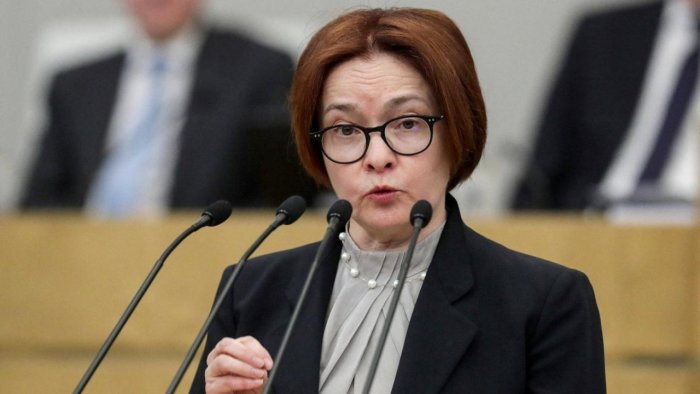Elvira Nabiullina is in charge of Russia’s economy for the second time in less than a decade, and she is navigating perilous seas.
With the ruble failing and inflation skyrocketing after just a year in office as the Central Bank of Russia’s governor, Ms. Nabiullina dragged the institution into a new era of economic policymaking by dramatically boosting interest rates. The politically hazardous measure slowed the economy, brought down surging prices, and earned her a reputation as a stern decision maker throughout the world as a result.
As a rising star among central bankers and technocrats charged with keeping prices under control and financial systems stable, Ms. Nabiullina rose to prominence as a result of her use of conventional policies to manage an unruly economy that was often tied to the price of oil, as reported by the Financial Times. Euromoney magazine selected her Central Bank Governor of the Year in 2015, and she was the first woman to do so. Three years later, Christine Lagarde, then the managing director of the International Monetary Fund, exclaimed that Ms. Nabiullina had the ability to “make central banking sing.”
Mrs. Nabiullina must now shepherd Russia’s economy through a profound recession while also ensuring that the country’s financial system, which is sealed off from the rest of the world, remains in good working order. The issue comes on the heels of years spent bolstering Russia’s financial defences against the kinds of harsh sanctions that have been imposed in response to President Vladimir V. Putin’s geopolitical ambitions.
She has played a key role in the amazing recovery of Russia’s ruble, which had lost a fifth of its value in the days after the invasion of Ukraine on February 24. To prevent massive quantities of money from fleeing the nation, the central bank adopted tough steps, preventing a panic in the markets and a possible run on the banking system.
Ms. Nabiullina, 58, was re-elected to her position as chairperson of the Russian Federation Council in late April after President Vladimir Putin nominated her to complete a third term.
The value of the ruble plunged. In place of previous measures, including as spending enormous sums of foreign currency reserves to sustain the exchange rate, Ms. Nabiullina shifted the bank’s attention to controlling inflation. Interest rates were hiked to 17 percent under her administration, and they remained there for years.
It was a difficult period of transition, during which the economy contracted for a year and a half. But by mid-2017, she had accomplished something that had appeared impossible just a few years before: the country’s inflation rate had fallen below 4 percent, marking the lowest level in the country’s post-Soviet history.
Under the leadership of Ms. Nabiullina, the central bank has maintained its modernization initiatives. It has enhanced its communication by scheduling major policy decisions, offering policy advice, meeting with analysts, and agreeing to participate in media interviews. The Central Bank of Russia has come to be considered as the country’s economic brain, drawing well-known economists from the private sector to work in its financial institutions.
The central bank’s annual conference in St. Petersburg drew economists from all over the world, and Ms. Nabiullina attended international gatherings such as the Federal Reserve’s annual symposium in Jackson Hole, Wyoming, and regular meetings of central bankers held by the Bank for International Settlements in Basel, Switzerland, among others.
Ms. Nabiullina set out to remove as much dollars from the economy as she possibly could, in order to make businesses and financial institutions less susceptible if the United States tightened its grip on the country’s usage of dollars even more.
During her tenure as president, she also transferred the bank’s reserves, which had grown to be valued more than $600 billion, away from gold and towards euro and Chinese yuan holdings. According to Ms. Nabiullina, who spoke to Parliament last month, the percentage of dollars in the reserves has decreased from more than 40% to around 11% during her term. Despite the fact that sanctions have frozen the central bank’s foreign exchange holdings, the government still has “sufficient” gold and renminbi reserves, she told MPs.
Bloomberg News and The Wall Street Journal claimed in March, citing anonymous sources, that Ms. Nabiullina had attempted to quit after the invasion of Ukraine, but had been rejected by Mr. Putin, according to the reports. Those reports were rejected by the central bank.
After over a decade of hard work, Ms. Nabiullina earned a reputation for keeping inflation under control and introducing classical monetary policy to Russia. However, the financial sanctions imposed by the West after the invasion of Ukraine compelled her to forsake her favoured approaches. To avoid a credit crunch, she increased the interest rate to 20 percent, implemented capital controls to severely limit the movement of money out of the country, closed the Moscow Stock Exchange and relaxed banking laws to prevent lending from becoming a bottleneck for the economy.
These efforts served to avert the initial panic and aid in the recovery of the ruble, although the capital restrictions have only been partially relaxed as a result.
Russia is now experiencing a severe recession as a result of its closed economy. With the reduction of the interest rate to 14 percent on April 29, the bank signalled that it was shifting its focus away from quelling a financial tornado and toward attempting to minimise the long-term impact of sanctions on households and businesses as inflation accelerates and companies are forced to reinvent their supply chains in the absence of imported goods.
According to the central bank, inflation has risen sharply and is on track to hit a rate of 23 percent this year on an annual basis. According to the report, the global economy might contract by as much as 10%.

